COVID-19と国連の持続可能な開発目標
COVID-19 and UN Sustainable
Development Goals
COVID-19と国連の持続可能な開発目標
COVID-19 and UN Sustainable
Development Goals
2020年当初から国連は世界保健機関=WHOを通して、新型コロナウィルス感染症(COVID-19)の流行について懸念しており。2020年秋の時点では、SDGsの目標達成にも、おおきな地球的課題であると指摘しています。国連の「持 続可能な開発のための2030アジェンダ」がCOVID-19との取り組みについてリンクされたウェブページに記載しています。英語を引用するの でみんなで、英訳してみよう
 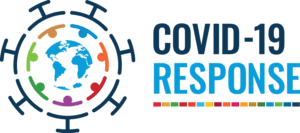 |
||
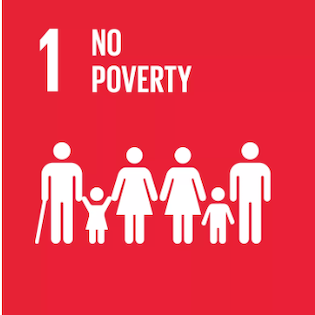 |
Developing
countries are most at risk during – and in the aftermath – of the
pandemic, not only as a health crisis but as a devastating social and
economic crisis over the months and years to come. According to UNDP
income losses are expected to exceed $220 billion in developing
countries, and an estimated 55 per cent of the global population have
no access to social protection. These losses will reverberate across
societies; impacting education, human rights and, in the most severe
cases, basic food security and nutrition. To support the poorest and most vulnerable, the UN has issued a Framework for the immediate socio-economic response to COVID-19, calling for an extraordinary scale-up of international support and political commitment to ensure that people everywhere have access to essential services and social protection. The UN COVID-19 Response and Recovery Fund aims to specifically support low- and middle-income countries as well as vulnerable groups who are disproportionately bearing the socio-economic impacts of the pandemic. Women leaders convened by UN Deputy Secretary-General Amina Mohammed have called for support for the UN roadmap for social and economic recovery and for fully funding of the UN Response and Recovery Fund. |
|
 |
The World Food
Programme’s food assistance programme provides a critical lifeline to
87 million vulnerable people across the world. Their analysis of the
economic and food security implications of the pandemic outlines the
potential impact of COVID-19 on the world’s poorest people. In light of the pandemic’s effects on the food and agricultural sector, prompt measures are needed to ensure that food supply chains are kept alive to mitigate the risk of large shocks that have a considerable impact on everybody, especially on the poor and the most vulnerable. In order to address these risks, the Food and Agriculture Organization urges countries to: Meet the immediate food needs of their vulnerable populations, Boost social protection programmes, Keep global food trade going, Keep the domestic supply chain gears moving, and Support smallholder farmers’ ability to increase food production. The UN’s Global Humanitarian Response Plan lays out steps to fight the virus in the world’s poorest countries and address the needs of the most vulnerable people, including those facing food insecurity. |
|
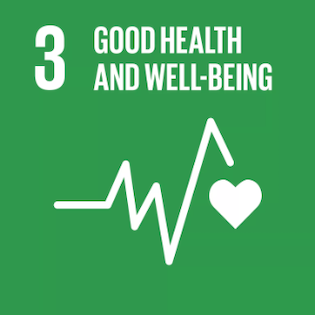 |
The World Health
Organization (WHO) has been leading the global effort to tackle
COVID-19. The Strategic Preparedness and Response Plan, produced by WHO
and partners, outlines the public health measures that countries should
take to prepare for and respond to COVID-19. The Strategy Update of
April 2020 provides further guidance for the public health response to
COVID-19 at national and subnational levels, and highlights the
coordinated support that is required from the international community
to meet the challenge of COVID-19. People and organizations who want to help fight the pandemic and support WHO and partners can donate through the COVID-19 Solidarity Response Fund which supports WHO’s work to track and understand the spread of the virus, to ensure patients get the care they need and frontline workers get essential supplies and information, and to accelerate research and development of a vaccine and treatments for all who need them. WHO, together with partners, also provides guidance and advice for people to look after their mental health during the COVID-19 pandemic — especially health workers, managers of health facilities, people who are looking after children, older adults, people in isolation and members of the public more generally. The pandemic is much more than a health crisis. It requires a whole-of-government and whole-of-society response, matching the resolve and sacrifice of frontline health workers. |
|
 |
In an effort to
foster international collaboration and ensure that education never
stops, UNESCO is mounting a response with a set of initiatives that
include the global monitoring of national and localized school closures. To protect the well-being of children and ensure they have access to continued learning, UNESCO in March 2020 launched the COVID-19 Global Education Coalition, a multi-sector partnership between the UN family, civil society organizations, media and IT partners to design and deploy innovative solutions. Together they help countries tackle content and connectivity gaps, and facilitate inclusive learning opportunities for children and youth during this period of sudden and unprecedented educational disruption. Specifically, the Global Education Coalition aims to: Help countries in mobilizing resources and implementing innovative and context-appropriate solutions to provide education remotely, leveraging hi-tech, low-tech and no-tech approaches; Seek equitable solutions and universal access; Ensure coordinated responses and avoid overlapping efforts; Facilitate the return of students to school when they reopen to avoid an upsurge in dropout rates. UNICEF also scaled up its work in 145 low- and middle-income countries to support governments and education partners in developing plans for a rapid, system-wide response including alternative learning programmes and mental health support. |
|
 |
“Limited gains in gender equality and
women’s rights made over the decades are in danger of being rolled back
due to the COVID-19 pandemic,” the UN Secretary-General said in April
2020, urging governments to put women and girls at the centre of
their recovery efforts. Women are not only the hardest hit by this pandemic, they are also the backbone of recovery in communities. Putting women and girls at the centre of economies will fundamentally drive better and more sustainable development outcomes for all, support a more rapid recovery, and place the world back on a footing to achieve the Sustainable Development Goals. Every COVID-19 response plans, and every recovery package and budgeting of resources, needs to address the gender impacts of this pandemic. This means: (1) including women and women’s organizations in COVID-19 response planning and decision-making; (2) transforming the inequities of unpaid care work into a new, inclusive care economy that works for everyone; and (3) designing socio-economic plans with an intentional focus on the lives and futures of women and girls. UN Women has developed a rapid and targeted response to mitigate the impact of the COVID-19 crisis on women and girls and to ensure that the long-term recovery benefits them, focused on five priorities: Gender-based violence, including domestic violence, is mitigated and reduced Social protection and economic stimulus packages serve women and girls People support and practise equal sharing of care work Women and girls lead and participate in COVID-19 response planning and decision-making Data and coordination mechanisms include gender perspectives The COVID-19 pandemic provides an opportunity for radical, positive action to redress long-standing inequalities in multiple areas of women’s lives, and build a more just and resilient world. |
|
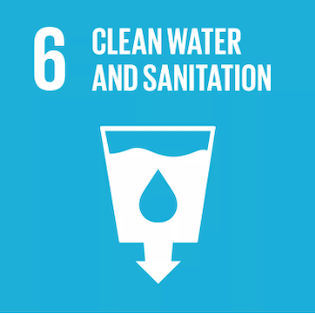 |
Availability and
access to water, sanitation and hygiene (WASH) services is fundamental
to fighting the virus and preserving the health and well-being of
millions. COVID-19 will not be stopped without access to safe water for
people living in vulnerability, UN experts said. The impacts of COVID-19 could be considerably higher on the urban poor living in slums, who don’t have access to clean water. UN-Habitat is working with partners to facilitate access to running water and handwashing in informal settlements. UNICEF is urgently appealing for funding and support to reach more girls and boys with basic water, sanitation and hygiene facilities, especially those children who are cut off from safe water because they live in remote areas, or in places where water is untreated or polluted, or because they are without a home, living in a slum or on the street. In response to the COVID-19 outbreak, the International Organization for Migration (IOM) is adjusting its WASH services to prevent the spread of the disease. This includes continued support to affected, at-risk, low-capacity and fragile countries to secure WASH services and infection prevention control in health facilities. Read more about the work in response to COVID-19 by UN-Water members and partners. |
|
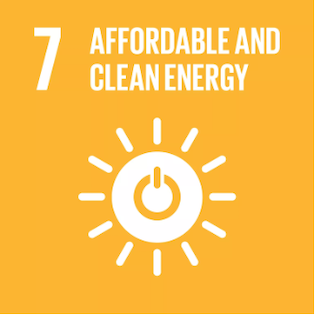 |
Lack of access to
energy may hamper efforts to contain COVID-19 across many parts of the
world. Energy services are key to preventing disease and fighting
pandemics – from powering healthcare facilities and supplying clean
water for essential hygiene, to enabling communications and IT services
that connect people while maintaining social distancing. 789 million people – predominantly in sub-Saharan Africa – are living without access to electricity, and hundreds of millions more only have access to very limited or unreliable electricity. It is estimated that only 28 percent of health facilities have access to reliable electricity in sub-Saharan Africa, yet energy is critically needed to keep people connected at home and to run life-saving equipment in hospitals. If hospitals and local communities don’t have access to power, this could magnify the human catastrophe and significantly slow the global recovery. The Special Representative of the UN Secretary-General for Sustainable Energy for All explained why energy access matters during the coronavirus emergency and outlined three ways to respond to the COVID-19 emergency: Prioritize energy solutions to power health clinics and first responders; Keep vulnerable consumers connected; Increase reliable, uninterrupted, and sufficient energy production in preparation for a more sustainable economic recovery. Read more about the role of energy in COVID-19 response. |
|
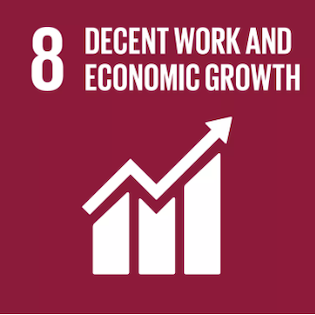 |
The COVID-19
pandemic has caused a historic recession with record levels of
deprivation and unemployment, creating an unprecedented human crisis
that is hitting the poorest hardest. In April 2020, the United Nations released a framework for the immediate socio-economic response to COVID-19, as a roadmap to support countries’ path to social and economic recovery. It calls for an extraordinary scale-up of international support and political commitment to ensure that people everywhere have access to essential services and social protection. The socio-economic response framework consists of five streams of work: Ensuring that essential health services are still available and protecting health systems; Helping people cope with adversity, through social protection and basic services; Protecting jobs, supporting small and medium-sized enterprises, and informal sector workers through economic response and recovery programmes; Guiding the necessary surge in fiscal and financial stimulus to make macroeconomic policies work for the most vulnerable and strengthening multilateral and regional responses; and Promoting social cohesion and investing in community-led resilience and response systems. These five streams are connected by a strong environmental sustainability and gender equality imperative to build back better. The UN Secretary-General has stressed that the recovery from the COVID-19 crisis must lead to a different economy. Beyond the immediate crisis response, the pandemic should be the impetus to sustain the gains and accelerate implementation of long-overdue measures to set the world on a more sustainable development path and make the global economy more resilient to future shocks. |
|
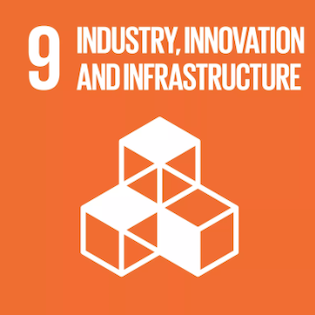 |
Information and
communication technologies have been on the frontlines of the COVID-19
response. The crisis has accelerated the digitalization of many
businesses and services, including teleworking and video conferencing
systems in and out of the workplace, as well as access to healthcare,
education and essential goods and services. As the pandemic reshapes the way in which we work, keep in touch, go to school and shop for essentials, it has never been more important to bridge the digital divide for the 3.6 billion people who remain offline, unable to access online education, employment or critical health and sanitation advice. The 2020 Financing for Sustainable Development Report provides policy options to harness the potential of digital technologies. Once the acute phase of the COVID-19 crisis is over, governments will need investments in infrastructure more than ever to accelerate economic recovery, create jobs, reduce poverty, and stimulate productive investment. The World Bank estimates that developing countries need to invest around 4.5 per cent of GDP to achieve the Sustainable Development Goals and at the same time limit global warming to no more than 2 degrees Celsius. |
|
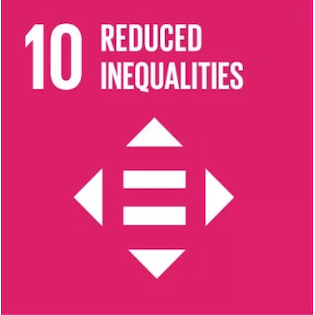 |
COVID-19 is not
only challenging global health systems but testing our common humanity.
The UN Secretary-General called for solidarity with the world’s poorest
and most vulnerable who need urgent support in responding to the worst
economic and social crisis in generations. “Now is the time to stand by
our commitment to leave no one behind,” the Secretary-General said. To ensure that people everywhere have access to essential services and social protection, the UN has called for an extraordinary scale-up of international support and political commitment, including funding through the UN COVID-19 Response and Recovery Fund which aims to support low- and middle-income countries and vulnerable groups who are disproportionately bearing the socio-economic impacts of the pandemic. This time of crisis must also be used as an opportunity to invest in policies and institutions that can turn the tide on inequality. Leveraging a moment when policies and social norms may be more malleable than during normal times, bold steps that address the inequalities that this crisis has laid bare can steer the world back on track towards the Sustainable Development Goals. For more information, see the SDG-10 Goal of the Month package: https://www.un.org/sustainabledevelopment/goal-of-the-month-may-2020 |
|
 |
Cities are on the
front line of coping with the pandemic and its lasting impacts. Across
the globe, COVID-19 is threatening cities and communities, endangering
not only public health, but also the economy and the fabric of
society. UN-Habitat, the UN agency for housing and urban development, is working with national and local governments to help them prepare for, prevent, respond to and recover from the COVID-19 pandemic. The UN Habitat COVID-19 Response Plan aims to: Support local governments and community-driven solutions in informal settlements Provide urban data, evidence-based mapping and knowledge for informed decision Mitigate economic impact and initiate recovery UN-Habitat’s COVID-19 Policy and Programme Framework provides guidance for global, regional and country-level action. The UN Economic Commission for Africa has proposed specific support to city governments to mitigate and respond to the economic effects of COVID-19. Africa’s cities account for more than 50% of the region’s GDP, and COVID-19 is likely to hit African cities hard, with sharp declines in productivity, jobs and revenues. |
|
 |
The current
crisis is an opportunity for a profound, systemic shift to a more
sustainable economy that works for both people and the planet. The emergence of COVID-19 has underscored the relationship between people and nature and revealed the fundamental tenets of the trade-off we consistently face: humans have unlimited needs, but the planet has limited capacity to satisfy them. We must try to understand and appreciate the limits to which humans can push nature, before the impact is negative. Those limits must be reflected in our consumption and production patterns. COVID-19 can be a catalyst for social change. We must build back better and transition our production and consumption patterns towards more sustainable practices. |
|
 |
As countries move
toward rebuilding their economies after COVID-19, recovery plans can
shape the 21st century economy in ways that are clean, green, healthy,
safe and more resilient. The current crisis is an opportunity for a
profound, systemic shift to a more sustainable economy that works for
both people and the planet. The UN Secretary-General has proposed six climate-positive actions for governments to take once they go about building back their economies and societies: Green transition: Investments must accelerate the decarbonization of all aspects of our economy. Green jobs and sustainable and inclusive growth Green economy: making societies and people more resilient through a transition that is fair to all and leaves no one behind. Invest in sustainable solutions: fossil fuel subsidies must end and polluters must pay for their pollution. Confront all climate risks Cooperation – no country can succeed alone. To address the climate emergency, post-pandemic recovery plans need to trigger long-term systemic shifts that will change the trajectory of CO2 levels in the atmosphere. Governments around the world have spent considerable time and effort in recent years to develop plans to chart a safer and more sustainable future for their citizens. Taking these on board now as part of recovery planning can help the world build back better from the current crisis. |
|
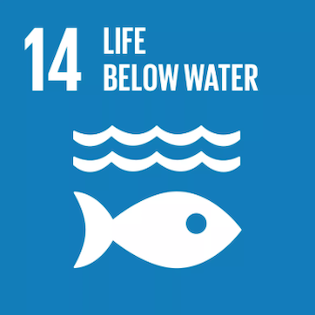 |
Ocean
conservation and action should not come to a halt while we tackle the
COVID-19 pandemic. We need to look at long-term solutions for the
health of our planet as a whole. Our lives depend on a healthy planet. The health of the ocean is intimately tied to our health. According to UNESCO, the ocean can be an ally against COVID-19: Bacteria found in the depths of the ocean are used to carry out rapid testing to detect the presence of COVID-19. And the diversity of species found in the ocean offers great promise for pharmaceuticals. The pandemic offers an opportunity to revive the ocean and start building a sustainable ocean economy. A report by the United Nations Economic and Social Commission for Asia and the Pacific suggests that the temporary shutdown of activities as well as reduced human mobility and resource demands due to the COVID-19 pandemic may provide marine environments the much-needed breathing space for them to start to recover. The UN Ocean Conference, originally scheduled for June 2020, was postponed to a later date (to be determined) due to the COVID-19 pandemic. |
|
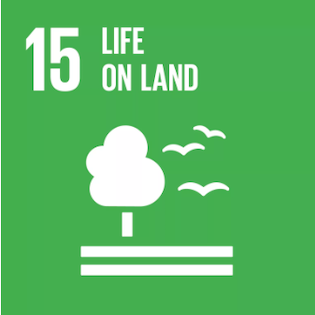 |
The COVID-19
outbreak highlights the need to address threats to ecosystems and
wildlife. In 2016, the United Nations Environment Programme (UNEP) flagged a worldwide increase in zoonotic epidemics as an issue of concern. Specifically, it pointed out that 75 per cent of all emerging infectious diseases in humans are zoonotic and that these zoonotic diseases are closely interlinked with the health of ecosystems. “In COVID-19, the planet has delivered its strongest warning to date that humanity must change,” said UNEP Executive Director Inger Andersen. In Working With the Environment to Protect People, UNEP lays out how to “build back better” – through stronger science, policies that back a healthier planet, and more green investments. UNEP’s response covers four areas: Helping nations manage COVID-19 waste, Delivering a transformational change for nature and people, Working to ensure economic recovery packages create resilience to future crises, and Modernizing global environmental governance. To prevent, halt and reverse the degradation of ecosystems worldwide, the UN has launched a Decade on Ecosystem Restoration (2021-2030). This globally-coordinated response to the loss and degradation of habitats will focus on building political will and capacity to restore humankind’s relation with nature. It is also a direct response to the call from science, as articulated in the Special Report on Climate Change and Land of the Intergovernmental Panel on Climate Change, and to the decisions taken by all UN Member States in the Rio Conventions on climate change and biodiversity, and the UN Convention to Combat Desertification. Work on a new and ambitious post-2020 Global Biodiversity Framework is also underway. As the world responds to and recovers from the current pandemic, it will need a robust plan for protecting nature, so that nature can protect humanity. |
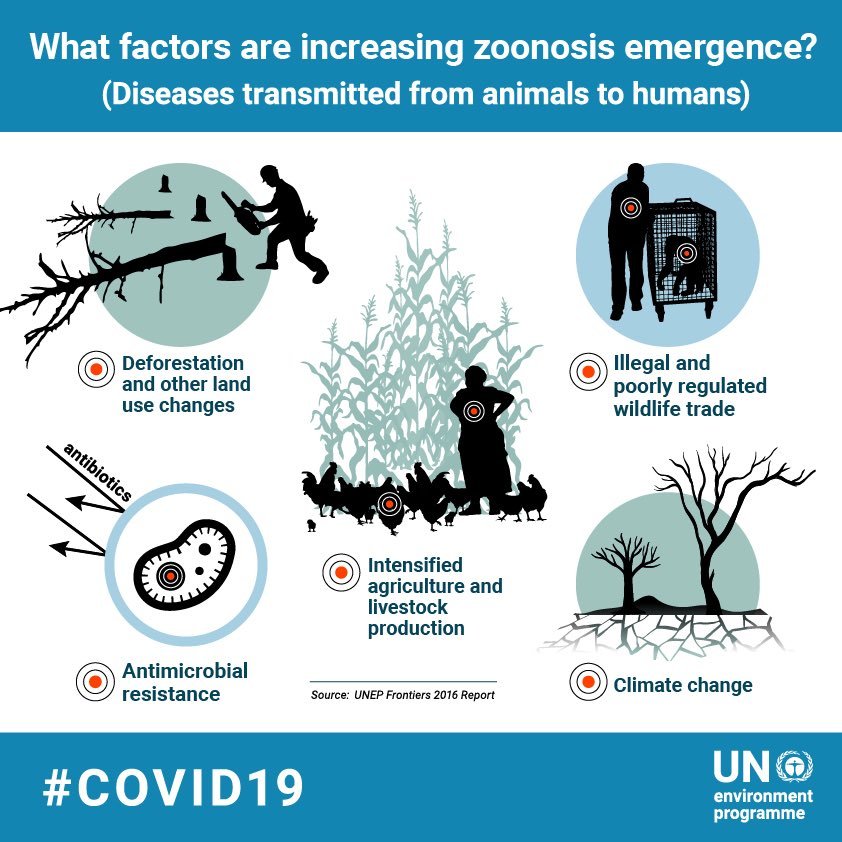 |
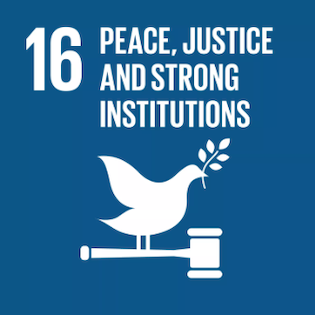 |
Human rights are
key in shaping the pandemic response. By respecting human rights in
this time of crisis, we will build more effective and inclusive
solutions for the emergency of today and the recovery for tomorrow. Human rights put people centre-stage. Responses that are shaped by and respect human rights result in better outcomes in beating the pandemic, ensuring healthcare for everyone and preserving human dignity. The UN Secretary General urged governments to be transparent, responsive and accountable in their COVID-19 response and ensure that any emergency measures are legal, proportionate, necessary and non-discriminatory. “The best response is one that responds proportionately to immediate threats while protecting human rights and the rule of law,” he said. To focus on “the true fight,” UN Secretary-General António Guterres called for a global ceasefire, in an appeal urging warring parties across the world to lay down their weapons in support of the bigger battle against the COVID-19 pandemic. More than 2 million people have signed the online petition in support of the Secretary-General’s cease-fire appeal. You can sign it here. |
|
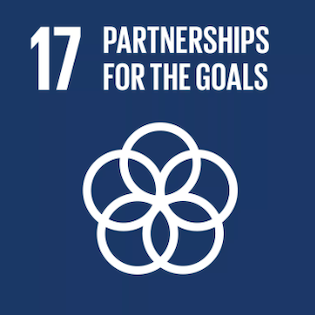 |
No country can
overcome this pandemic alone. Global solidarity is not only a moral
imperative, it is in everyone’s interests. The UN Secretary-General issued a series of policy briefs that lay out a vision for how the international community can deliver an effective, coordinated response to COVID-19, ensuring we keep the most vulnerable populations front and centre. The policy briefs bring together analysis from across the UN system and provide Member States with concrete ideas for how to address the consequences and even seize opportunities in the midst of the crisis. A high-level event convened by Canada, Jamaica and the United Nations on 28 May brought together governments and international organizations to sharpen and accelerate our global response to the significant economic and human impacts of COVID-19, and advance concrete solutions to the development emergency. Most developing countries do not have sufficient domestic resources and fiscal space to fund adequate COVID-19 response and recovery measures. International cooperation and external finance are crucial. Particularly alarming is the prospect of a new debt crisis, compounded by tumbling prices for oil and other key commodities, heavily impacting Least Developed Countries that were already at high risk of debt distress. The UN is calling for Special Drawing Rights, targeted debt relief and an extension of the debt moratorium to all developing countries. The 2020 Financing for Sustainable Development Report outlines measures to address the impact of the unfolding global recession and financial turmoil, especially in the world’s poorest countries, based on joint research and analysis by more than 60 UN agencies and international institutions. To support efforts in low- and middle-income countries, the UN Secretary-General launched a UN Response and Recovery Trust Fund. In addition, the UN set out a Global Humanitarian Response Plan to assist the most vulnerable populations, including refugees and internally displaced persons. And the World Health Organization (WHO), the UN Foundation and partners launched a first-of-its-kind Solidarity Response Fund to allow corporations and individuals to directly contribute to WHO’s COVID-19 response. To address issues of open and timely access to critical data needed by governments and all sectors of society to respond to the global COVID-19 crisis, this UN portal provides a space for the global statistical community to share guidance, actions, tools and best practices to ensure the operational continuity of data programmes by National Statistical Offices. To combat the growing scourge of COVID-19 misinformation, the UN launched Verified, an initiative to increase the volume and reach of trusted, accurate information on three themes: science (to save lives), solidarity (to promote local and global cooperation), and solutions (to advocate for support to impacted populations). |
他方、国連では、グローバル・イシューズという、現在、地球が抱えているさまざまな問題 が含まれる大きな課題を18課題にまとめています。
■国連のグローバル・イシュー(global issues Overvies, by UN)
サイト外リンク
サイト内リンク
文献
その他の情報
Copyright Mitzub'ixi Quq Chi'j, 2017-2018
For all undergraduate students!!!, you do not paste but [re]think my
message.

Remind Wittgenstein's phrase, "I should not like my writing to spare
other people the trouble of thinking. But, if possible, to stimulate
someone to thoughts of his own," - Ludwig Wittgenstein